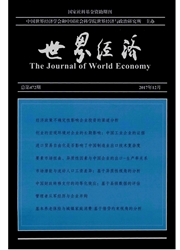

 中文摘要:
中文摘要:
本文将退休制度、家庭照料和劳动参与放在一个统一的分析框架中,通过考察制度退休对家庭照料和劳动参与的影响,对中国改革退休年龄的政策进行评析。参保职工办理退休后工作机会减少、养老金这一非劳动收入提高,个人在家庭内提供照料的可能性增加,参与劳动力市场的可能性下降。本文采用中国健康与养老跟踪调查数据中处于退休年龄前后的样本,利用双变量二元选择模型的分析结果表明,参保女性在办理退休手续(制度退休)后,照料概率提高34个百分点,劳动参与概率下降40个百分点;随着受教育程度的提高,退休对照料和劳动参与的边际效应减小。男性在制度退休后,照料概率增加13个百分点,劳动参与概率降低47个百分点。在其他条件相同时,若将女性退休年龄提高到55岁和60岁,则51—60岁女性提供家庭照料的概率将分别下降12和29个百分点。随着养老保险覆盖面扩大,延迟退休年龄政策需要权衡劳动供给和家庭照料之间的矛盾。
 英文摘要:
英文摘要:
This paper investigates the effect of mandatory retirement on care and labor participation. After institutional retirement, the expected wage will be reduced and pension income will increase, there-fore the probabilities of providing care and leaving labor market are going up. Using samples near retirement age in China Health and Retirement Longitudinal Survey, i.e. women aged from 45 to 65, men aged from 50 to 70, this paper adopts the bivariate probit model and finds that after institutional retirement, women will increase care provision by 34 per cents and reduce labor participation by 40 per cents. For those highly educated women, the effect is smaller. Men will increase care provision by 13 per cents and reduce labor participation by 47 per cents. Simulation shows that for women aged between 51 and 60, postponing retirement age to 55 (or 60) will reduce the likelihood of care by 12 (or 29) per cents. With the expansion of social insurance coverage, the policy of postponing retirement age should balance the contradiction between labor supply and family care.
 同期刊论文项目
同期刊论文项目
 同项目期刊论文
同项目期刊论文
 期刊信息
期刊信息
